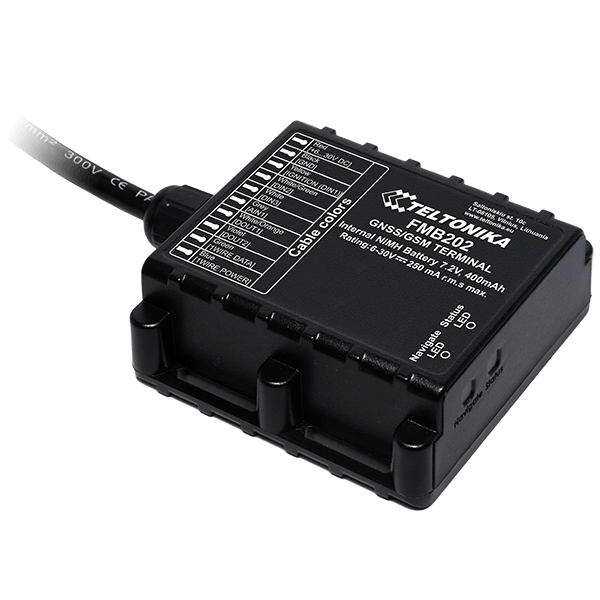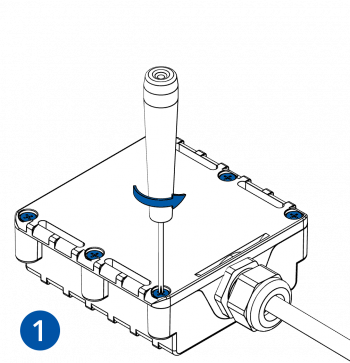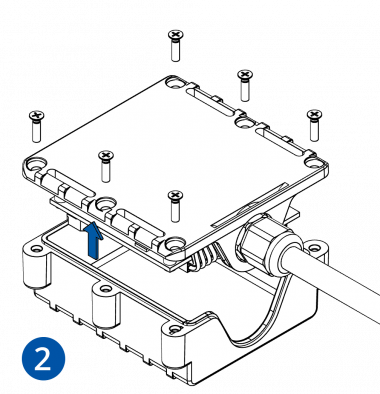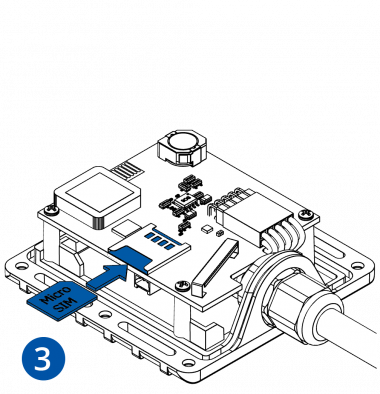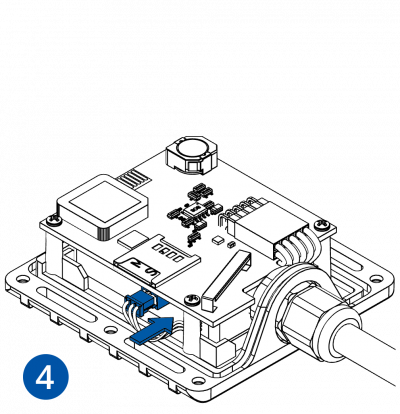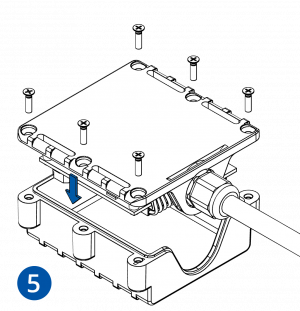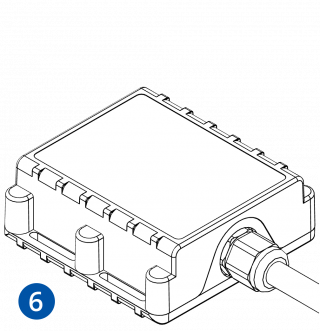Difference between revisions of "Template:FMB2 First start card"
From Wiki Knowledge Base | Teltonika GPS
Simkunas.ma (talk | contribs) |
|||
| (35 intermediate revisions by 6 users not shown) | |||
| Line 1: | Line 1: | ||
[[Image:Qsg_rut950_teltonika.PNG|centre]] | [[Image:Qsg_rut950_teltonika.PNG|centre]] | ||
| + | <b><font size="+10">{{{model|FMB20X}}} Small and professional waterproof tracker with internal high gain {{{antenna|GNSS/GSM antennas}}}, Bluetooth and high capacity internal Ni-MH battery</font></b> | ||
| − | < | + | <font size="+3">Quick Start Guide</font> {{{pic|[[Image:FMB202.png|600px|right]]}}} |
| − | |||
| − | |||
| − | |||
| − | |||
| − | |||
| − | |||
| − | |||
| − | |||
| − | |||
| − | |||
| − | |||
| − | |||
| − | |||
| − | |||
| − | ==''' | + | |
| + | |||
| + | |||
| + | |||
| + | |||
| + | |||
| + | |||
| + | |||
| + | |||
| + | |||
| + | |||
| + | |||
| + | |||
| + | |||
| + | |||
| + | |||
| + | <font size="+3"><span style=color:#104996>'''How to insert micro SIM card into {{{model|FMB20X}}}'''</span></font> | ||
| + | |||
| + | <font size="+2"><span style=color:#F49E21> 1. </span> Open {{{model|FMB20X}}} case using screwdriver. </font> | ||
| + | |||
| + | <font size="+2"><span style=color:#F49E21> 2. </span> Remove {{{model|FMB20X}}} case. </font> | ||
| + | |||
| + | <font size="+2"><span style=color:#F49E21> 3. </span> Insert SIM card as shown. </font> | ||
| + | |||
| + | <font size="+2"><span style=color:#F49E21> 4. </span> Connect battery connector as shown. </font> | ||
| + | |||
| + | <font size="+2"><span style=color:#F49E21> 5. </span> Attach case, and screw in the screws. </font> | ||
| + | |||
| + | <font size="+2"><span style=color:#F49E21> 6. </span> Device is ready. </font> | ||
| + | |||
| + | [[Image:case7.png|350px]] [[Image:case4.png|380px]] [[Image:case2.png|380px]] [[Image:case5.png|400px]] [[Image:case3.png|300px]] [[Image:case6.png|320px]] | ||
| + | |||
| + | ==Cable colors== | ||
{| class="wikitable" | {| class="wikitable" | ||
|+ | |+ | ||
| − | ! style=" | + | ! style="background: white; color: #F6A83E;" | Wire color |
| − | + | | style="background: white; color: #F6A83E;" | Name | |
| − | + | | style="background: white; color: #F6A83E;" rowspan="13" | [[Image:Fmb_120_2x6_pinout.png|200px|center]] | |
| − | |||
|- | |- | ||
| − | | style=" | + | | style="text-align: left; background: #F6F6FB;" | Red |
| − | | style=" | + | | style="text-align: left; background: #F6F6FB;" | Power supply (+6...30V DC). |
| − | |||
|- | |- | ||
| − | | style=" | + | | style="text-align: left; background: #F6F6FB;" | 2 |
| − | | style=" | + | | style="text-align: left; background: #000000;" | <span style=color:#808080>'''AIN 1'''</span> |
| − | + | | style="text-align: left; background: #F6F6FB;" | Analog input, channel 1. Input range: 0-30 V DC. | |
|- | |- | ||
| − | | style=" | + | | style="text-align: left; background: #F6F6FB;" | 3 |
| − | | style=" | + | | style="text-align: left; background: #000000;" | <span style=color:#FFFFFF>'''AIN 2 / DIN 3'''</span> |
| − | + | | style="text-align: left; background: #F6F6FB;" | Analog input, channel 2. Input range: 0-30 V DC / Digital input, channel 3. | |
|- | |- | ||
| − | | style=" | + | | style="text-align: left; background: #F6F6FB;" | 4 |
| − | + | | style="text-align: left; background: #000000;" | '''<span style=color:#00FF00>D</span><span style=color:#FFFFFF>IN</span><span style=color:#00FF00> 2</span>''' | |
| − | | style=" | + | | style="text-align: left; background: #F6F6FB;" | Digital input, channel 2. |
|- | |- | ||
| − | | style=" | + | | style="text-align: left; background: #F6F6FB;" | 5 |
| − | | style=" | + | | style="text-align: left; background: #000000;" | <span style=color:#FFFF00>'''DIN 1'''</span> |
| − | + | | style="text-align: left; background: #F6F6FB;" | Digital input, channel 1. | |
|- | |- | ||
| − | | style=" | + | | style="text-align: left; background: #F6F6FB;" | 6 |
| − | + | | style="text-align: left; background: #000000;" | '''<span style=color:#0000FF>IN</span><span style=color:#FFFFFF>PU</span><span style=color:#0000FF>T 6</span>''' | |
| − | | style=" | + | | style="text-align: left; background: #F6F6FB;" | TX EXT (LVCAN – TX). |
|- | |- | ||
| − | | style=" | + | | style="text-align: left; background: #F6F6FB;" | 7 |
| − | | style=" | + | | style="text-align: left; background: #F6F6FB;" | <span style=color:#000000>'''GND''' </span>(-) |
| − | + | | style="text-align: left; background: #F6F6FB;" | Ground. | |
|- | |- | ||
| − | | style=" | + | | style="text-align: left; background: #F6F6FB;" | 8 |
| − | + | | style="text-align: left; background: #000000;" | '''<span style=color:#FFA500>D</span><span style=color:#FFFFFF>OU</span><span style=color:#FFA500>T 1</span>''' | |
| − | | style=" | + | | style="text-align: left; background: #F6F6FB;" | Digital output, channel 1. Open collector output. Max. 3,3 A DC. |
|-FFA500 | |-FFA500 | ||
| − | | style=" | + | | style="text-align: left; background: #F6F6FB;" | 9 |
| − | | style=" | + | | style="text-align: left; background: #000000;" | <span style=color:#800080>'''DOUT 2'''</span> |
| − | | style=" | + | | style="text-align: left; background: #F6F6FB;" | Digital output, channel 2. Open collector output. Max. 3,3 A DC. |
| + | |- | ||
| + | | style="text-align: left; background: #F6F6FB;" | 10 | ||
| + | | style="text-align: left; background: #000000;" | <span style=color:#0000FF>'''1WIRE POWER'''</span> | ||
| + | | style="text-align: left; background: #F6F6FB;" | +3,8 V output for 1–Wire devices. | ||
| + | |- | ||
| + | | style="text-align: left; background: #F6F6FB;" | 11 | ||
| + | | style="text-align: left; background: #000000;" | <span style=color:#00FF00>'''1WIRE DATA'''</span> | ||
| + | | style="text-align: left; background: #F6F6FB;" | Data for 1–Wire devices. | ||
|- | |- | ||
| − | | style=" | + | | style="text-align: left; background: #F6F6FB;" | 12 |
| − | + | | style="text-align: left; background: #000000;" | '''<span style=color:#FFFF00>IN</span><span style=color:#FFFFFF>PU</span><span style=color:#FFFF00>T 5</span>''' | |
| − | | style=" | + | | style="text-align: left; background: #F6F6FB;" | RX EXT (LVCAN - RX). |
|- | |- | ||
|} | |} | ||
Revision as of 06:52, 24 May 2018
FMB20X Small and professional waterproof tracker with internal high gain GNSS/GSM antennas, Bluetooth and high capacity internal Ni-MH battery
Quick Start Guide
How to insert micro SIM card into FMB20X
1. Open FMB20X case using screwdriver.
2. Remove FMB20X case.
3. Insert SIM card as shown.
4. Connect battery connector as shown.
5. Attach case, and screw in the screws.
6. Device is ready.
Cable colors
| Wire color | Name | |
|---|---|---|
| Red | Power supply (+6...30V DC). | |
| 2 | AIN 1 | Analog input, channel 1. Input range: 0-30 V DC. |
| 3 | AIN 2 / DIN 3 | Analog input, channel 2. Input range: 0-30 V DC / Digital input, channel 3. |
| 4 | DIN 2 | Digital input, channel 2. |
| 5 | DIN 1 | Digital input, channel 1. |
| 6 | INPUT 6 | TX EXT (LVCAN – TX). |
| 7 | GND (-) | Ground. |
| 8 | DOUT 1 | Digital output, channel 1. Open collector output. Max. 3,3 A DC. |
| 9 | DOUT 2 | Digital output, channel 2. Open collector output. Max. 3,3 A DC. |
| 10 | 1WIRE POWER | +3,8 V output for 1–Wire devices. |
| 11 | 1WIRE DATA | Data for 1–Wire devices. |
| 12 | INPUT 5 | RX EXT (LVCAN - RX). |

